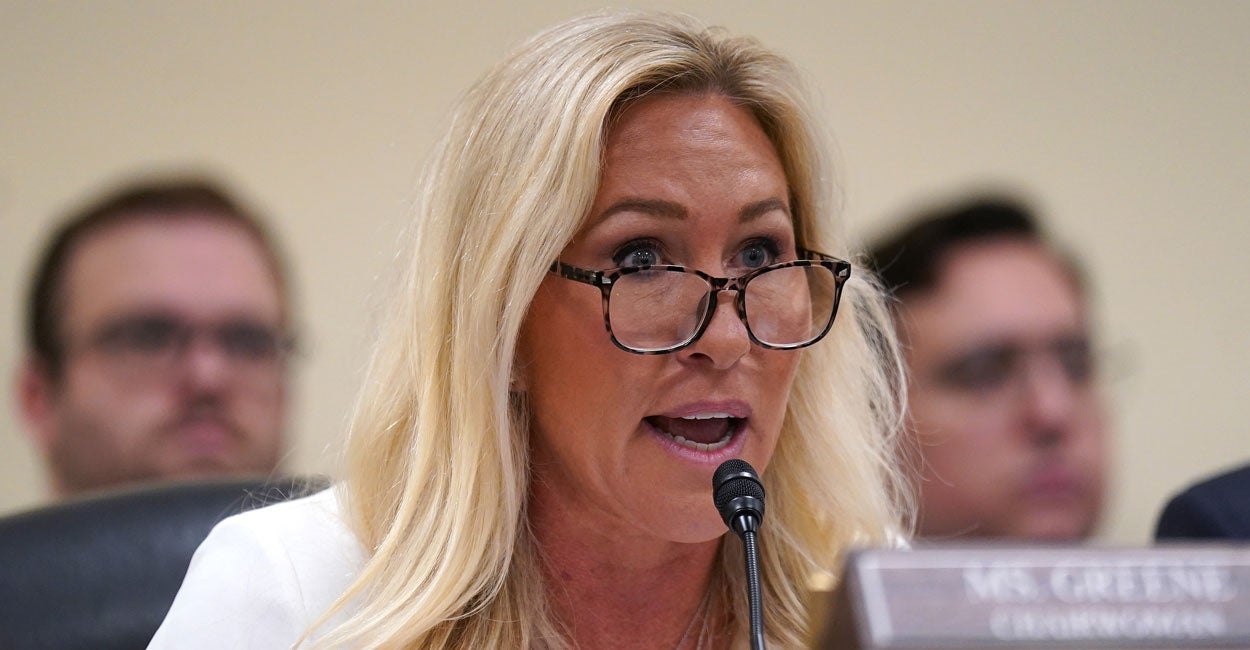


Speaker of the House Mike Johnson and Rep. Marjorie Taylor Greene strongly disagree over a provision in the “big, beautiful bill” that he considers vital for national security, but that she views as a violation of states’ rights.
Greene, R-Ga., spoke out Tuesday against the bill’s 10-year moratorium on states “limiting, restricting, or otherwise regulating artificial intelligence models,” calling it a “violation of state rights” and pledging not to vote for the bill with that provision.
Asked by The Daily Signal on Wednesday whether he would remove the moratorium provision for Greene, Johnson suggested it was there to stay.
“No, I’ve been talking to Marjorie about that. There’s a lot of analysis that goes into this, some of it you have to receive in the SCIF,” referring to what’s called a sensitive compartmented information facility. “ … It’s classified. We have to be careful not to have 50 different states hyperregulating AI, because it has national security implications,” said Johnson, R-La., adding:
“If some of the deep blue states smother it with regulation, as they’re prone to do, then it might hamper our development, and it could put us in a compromised position against our enemies, China and others.”
He suggested that Congress would regulate the industry with federal legislation.
“I think there’s a federal response that’s appropriate here. I think we can do it in a way that protects federalism, and it’s important to point out that the states still have the authority under law to pass criminal laws and laws of general applicability, so we’re not taking away states’ rights.”
Asked then if he would tweak the disputed provision instead of throwing it out, Johnson said, “I like it in its current form. I mean, I know the president supports it in its current form, so we’ll see where that goes.”
Greene herself, reacting to the video of Johnson in her office, scoffed.
“The argument for this bill is to allow the United States tech and AI companies to compete with China, not to hold them back in any way. However, destroying federalism to allow an industry to expand and grow and develop is the most irresponsible thing we could do as lawmakers,” she told The Daily Signal.
The Georgia lawmaker suggested states wouldn’t want to smother AI development in any case, as governors want to create jobs.
“They’re going to want to bring AI jobs into their state. So, they’ll have very few laws or regulations,” she said. “Then there’s going to be other states that make laws and regulate, but that’s the states’ rights.”
Much of Greene’s concern comes from the as-yet-unknown future of artificial intelligence.
“We don’t know what AI is going to be. We don’t know what it will be in one year, five years, 10 years down the road … . Creators of AI even say they don’t know if AI will kill us all. They have no clue what AI will do.”

She said that her conversations with Johnson on the issue had been “limited” because the members all flew back into Washington from recess on Tuesday.
She questioned the idea of federal regulations.
“I think [Johnson] said in that video we will also be passing federal laws to regulate AI. But yet, I haven’t read that bill yet. So, am I supposed to destroy federalism with the promise of ‘We are going to regulate it?’ Absolutely not.”
Greene is a supporter of the “big, beautiful” budget reconciliation bill’s fulfillment of campaign promises on border security funding and extending tax cuts, but this issue is a red line for her.
“I will have no part of destroying state rights. Absolutely not,” Greene said when asked whether the provision must be eliminated for her to vote for the bill.
